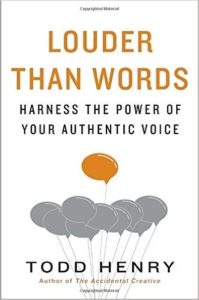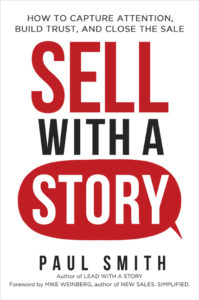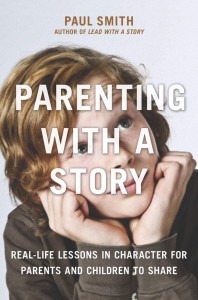Podcast: Play in new window | Download | Embed
Subscribe: RSS
Podcast (lead-with-a-story-podcast-series): Play in new window | Download | Embed
Subscribe: RSS
 My guest this week is speaker and bestselling author Todd Henry, and he’ll be sharing some wisdom from his latest book, Louder Than Words: Harness the Power of Your Authentic Voice. In particular, he starts with an inspiring story about one of the greatest failures in the history of music, and what we can all learn from it.
My guest this week is speaker and bestselling author Todd Henry, and he’ll be sharing some wisdom from his latest book, Louder Than Words: Harness the Power of Your Authentic Voice. In particular, he starts with an inspiring story about one of the greatest failures in the history of music, and what we can all learn from it.
He’s given me permission to insert the text of that particular story from one of his blog posts (see full article here). But the real wisdom is found in the bulk of our conversation after that where he describes what he learned from it. So I’d recommend listening to the whole conversation by clicking the play button above. If you’ve already read the story below, you can fast forward to about the 7-minute mark.
In July 1967, a young musician took the stage to perform as the opening act for one of the most popular bands of the day. The popular band was drawing thousands of people to venues all over the United States, and for the promising, but still largely unknown artist, this was a tremendous opportunity. Unfortunately, the first performance didn’t go quite as hoped. According to reports, it only took a few songs before the audience began to boo the performer and demand the main act.
 Like a professional, the musician finished the set and hoped for a better showing the following night. However, it didn’t get any better in the next city. In fact, it was worse. Word had spread from city to city, and the reception grew more bitter with each performance. Finally, after the seventh night of the tour, the musician walked off stage and quit the tour.
Like a professional, the musician finished the set and hoped for a better showing the following night. However, it didn’t get any better in the next city. In fact, it was worse. Word had spread from city to city, and the reception grew more bitter with each performance. Finally, after the seventh night of the tour, the musician walked off stage and quit the tour.
If you were present at one of those concerts in July 1967, you might have thought you were witnessing one of the greatest failures in music history. It doesn’t get much worse than being booed off-stage by an audience. However, I believe that there was something quite different going on.
Those present in the summer of 1967–when a young Jimi Hendrix took the stage to open for The Monkees–were witnessing an artist walking through the refining fires of the creative process. There was clearly a mismatch of audiences–the teenage girls who flocked to see The Monkees had no interest whatsoever in the experimental rock of Hendrix. However, in isolation Hendrix looked like an utter failure, when he was actually just in the process of finding his audience.
Sometimes, great ideas are abandoned simply because they meet initial resistance from the wrong crowd. This is true in business as much as it is in art or music. Without a clear understanding of your intended audience, it’s easy to compromise when things get tough. (Imagine if Hendrix had watered down his music to better match The Monkees’ crowd.)
Listen to the podcast for our discussion of the many lessons to be learned from that story.
Todd went on to describe one of the tools he recommends to combat that temptation Hendrix must have felt to Monkey-ize his music. He calls it a personal manifesto. He described his in brief, which you can also read about here.
You can find Todd’s all of three Todd’s books here. And you can learn more about him and what he does by going to www.toddhenry.com. [Click here to listen to my first podcast with Todd from 2014.]
—
 Paul Smith is one of the world’s leading experts on business storytelling. He’s a keynote speaker, storytelling coach, and bestselling author of the books Lead with a Story, Parenting with a Story, and Sell with a Story.
Paul Smith is one of the world’s leading experts on business storytelling. He’s a keynote speaker, storytelling coach, and bestselling author of the books Lead with a Story, Parenting with a Story, and Sell with a Story.


 Connect with him via email here.
Connect with him via email here.
Follow him on Facebook, LinkedIn, Twitter, and Instagram.
Sign up for his newsletter here to get one new story a week delivered to your inbox.

